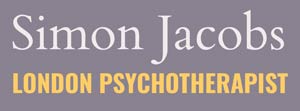TELL ME WHAT YOU WANT….
When a person starts therapy they feel that something isn’t right; a depression, a dysfunctional relationship, a lack of self-belief. Some aspect of life feels out of balance and a desire to redress this prompts them to seek help. The therapist entrusted with this situation will need to agree with their client what the problem is before the process can unfold. This understanding of the situation is a critical aspect of the beginning of therapy and may require the client to confront painful truths about themselves and most importantly to know what they want from life. Without it therapy is in danger of becoming an aimless ramble towards nowhere in particular.
I am not making a case for solution-focused therapy per se, but more to underline the importance of a ‘brief’ for therapy; an understanding of a direction towards which a person wants to move in their life. This may include goals, behavioural changes, re-framing, widening of perspectives,significant life-changes and so on. But underneath it, the motivation will be a want/need.

The pressures to conform to the expectations of family, religion, class and culture so that we lose touch with or have not gained an awareness of our desires and values, make it surprisingly difficult to ascertain these essential truths about ourselves. A client who says they ‘should’, ‘ought’, ‘have to’ do something reveals a struggle in themselves with such expectations. It can be empowering just to hear oneself swapping these words for ‘I choose’, ‘I prefer’ or ‘I want’. Knowing these wants and needs comes from an embodied sense of ourselves. They are not simply thoughts or ideas that spring from nowhere but are felt in the same way as when we describe knowing what’s right for us as a ‘gut instinct’.
The wider field of psychological exploration seems increasingly to be incorporating an understanding of the body (including the brain) into its methodologies. The dramatic rise of mindfulness, a technique which requires awareness of mind, body and spirit, as a treatment for depression and anxiety, reflects this.
The exploration of this vast question, ‘what do you want?’, as a starting point for therapy, must then take account of what a person is thinking, imagining, feeling and sensing within their entire being. It is an approach that as a gestalt therapist, is at the heart of what I believe constitutes effective psychotherapy and coaching.
When a person starts therapy they feel that something isn’t right; a depression, a dysfunctional relationship, a lack of self-belief. Some aspect of life feels out of balance and a desire to redress this prompts them to seek help. The therapist entrusted with this situation will need to agree with their client what the problem is before the process can unfold. This understanding of the situation is a critical aspect of the beginning of therapy and may require the client to confront painful truths about themselves and most importantly to know what they want from life. Without it therapy is in danger of becoming an aimless ramble towards nowhere in particular.
I am not making a case for solution-focused therapy per se, but more to underline the importance of a ‘brief’ for therapy; an understanding of a direction towards which a person wants to move in their life. This may include goals, behavioural changes, re-framing, widening of perspectives,significant life-changes and so on. But underneath it, the motivation will be a want/need.
The pressures to conform to the expectations of family, religion, class and culture so that we lose touch with or have not gained an awareness of our desires and values, make it surprisingly difficult to ascertain these essential truths about ourselves. A client who says they ‘should’, ‘ought’, ‘have to’ do something reveals a struggle in themselves with such expectations. It can be empowering just to hear oneself swapping these words for ‘I choose’, ‘I prefer’ or ‘I want’. Knowing these wants and needs comes from an embodied sense of ourselves. They are not simply thoughts or ideas that spring from nowhere but are felt in the same way as when we describe knowing what’s right for us as a ‘gut instinct’.
The wider field of psychological exploration seems increasingly to be incorporating an understanding of the body (including the brain) into its methodologies. The dramatic rise of mindfulness, a technique which requires awareness of mind, body and spirit, as a treatment for depression and anxiety, reflects this.
The exploration of this vast question, ‘what do you want?’, as a starting point for therapy, must then take account of what a person is thinking, imagining, feeling and sensing within their entire being. It is an approach that as a gestalt therapist, is at the heart of what I believe constitutes effective psychotherapy and coaching.


